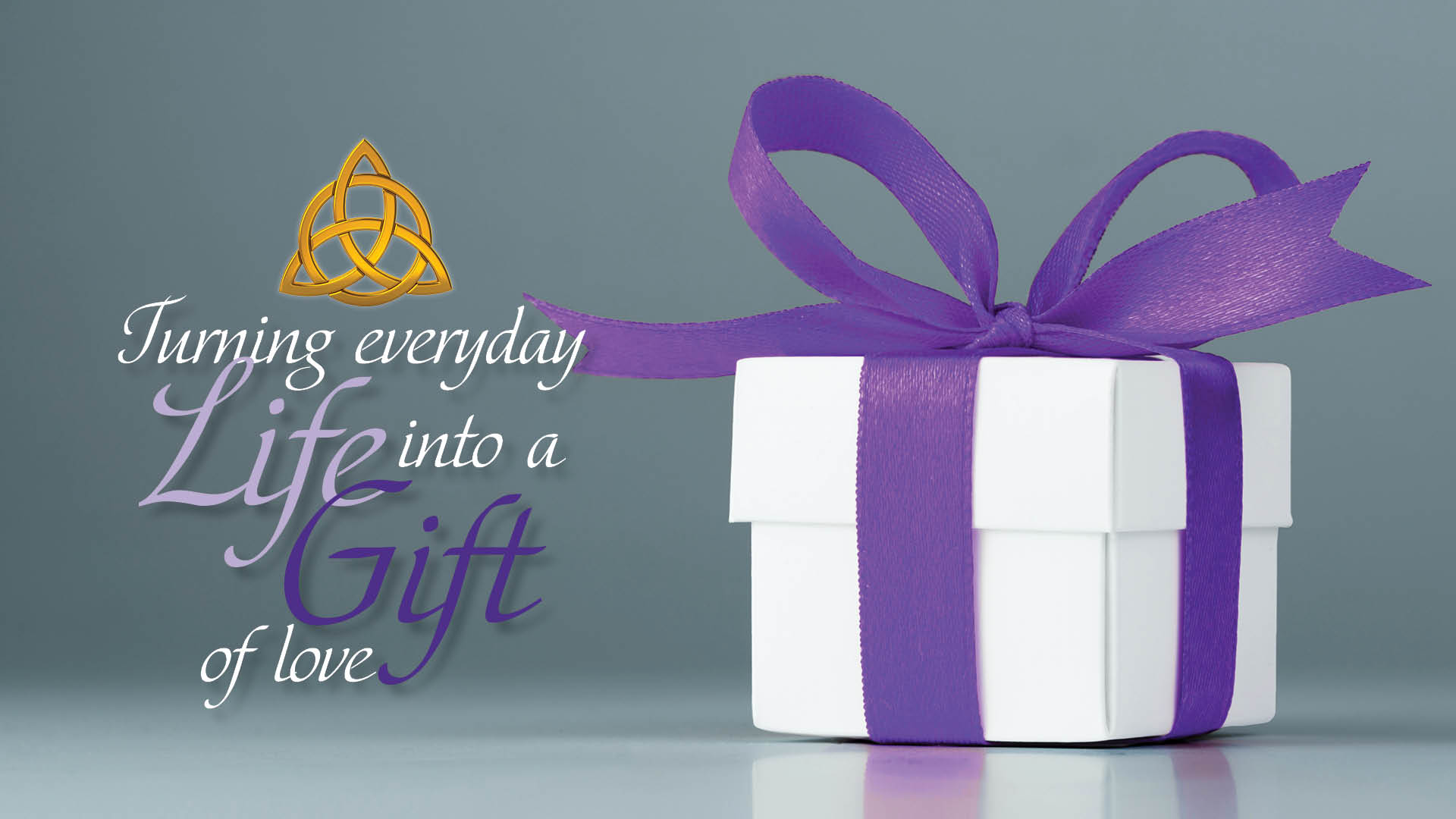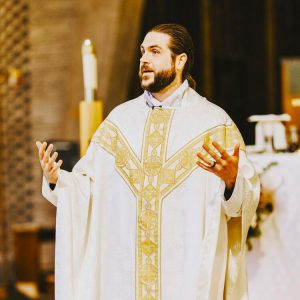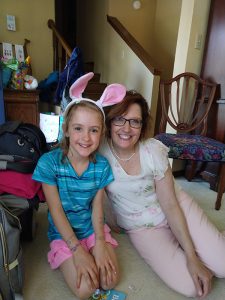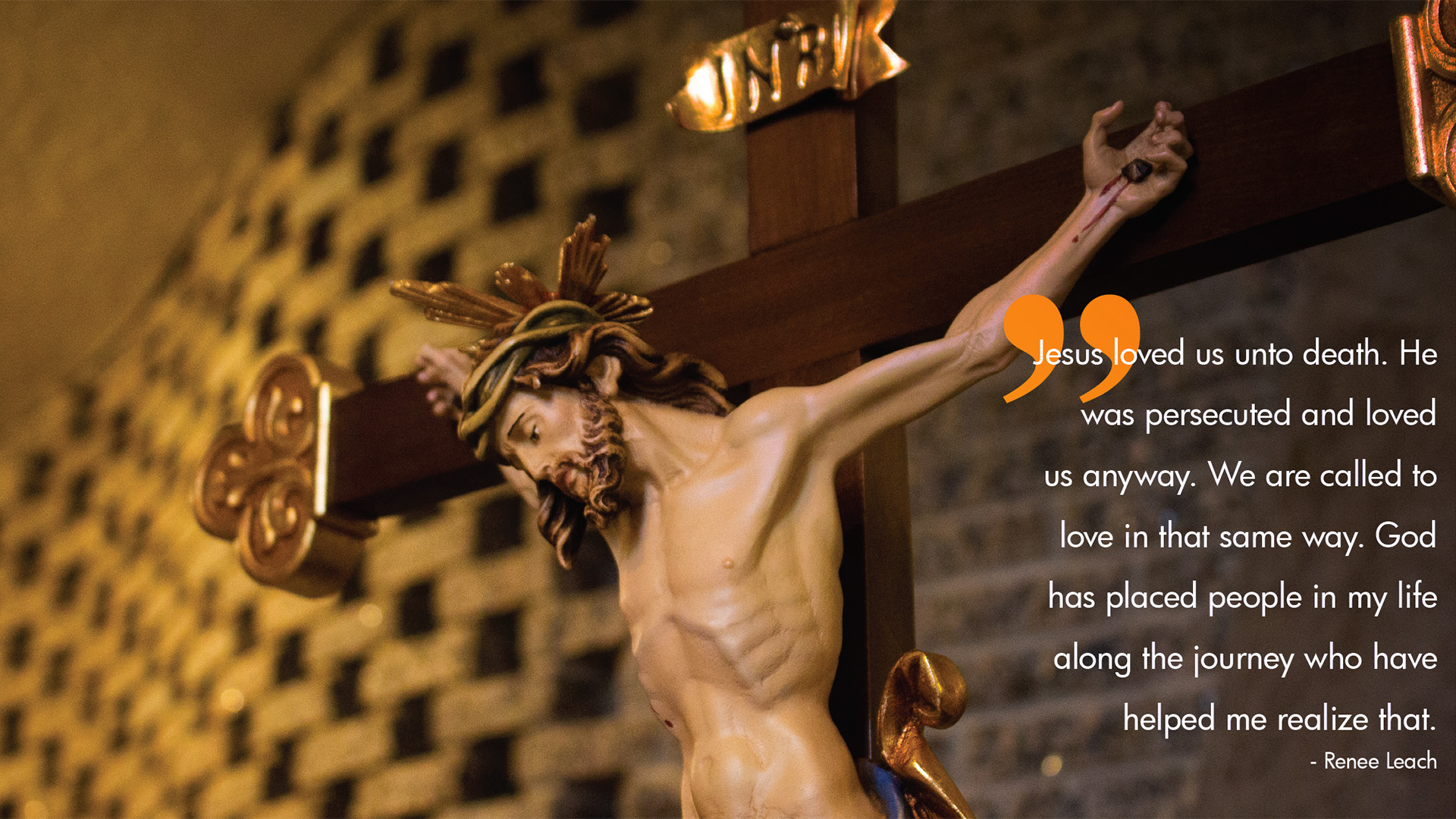
by Josie Bopp
After hearing a laundry list of to-dos from the Messiah during the Sermon on the Mount in Matthew’s Gospel, ending with a command to perfection might have almost seemed like a tease to the Jewish audience of his day. What more could this man actually demand of us?
The beatitudes, with their praises for those who are meek, to the teaching that anger against a brother is akin to murder, to the command to love even our enemies, is difficult enough, until Jesus wraps it all up with an even more problematic and puzzling phrase: “So be perfect, just as your heavenly Father is perfect” (Matthew 5:48).
But rather than a final command piled on at the end of a list of seemingly impossible demands, Jesus is actually offering us an invitation into the life of God, says Father Tyler Mattson, pastor of St. Nicholas in Tea and St. Christina in Parker.
“There is this recognition that as human beings, we’re made in the image of God,” Father Mattson said. “But to really take that seriously means to look at, okay, what is God’s life actually like?”
Trinitarian identity

At the center of Christian theology stands the doctrine of the Trinity, that our God is a communion of persons. Within the life of the Trinity, there is this constant giving and receiving of a gift, Father Mattson says. The Father makes the gift of himself totally to the Son. The Son receives that gift and then makes a gift of himself totally to the Father and the mutual gift of the Father and the Son is the Holy Spirit—a communion of love.
“When we look at our own lives as Christians, we can say, ‘My life is a gift, too,’ because that’s who God is,” Father Mattson said.
Jesus’ revelation of God as Father, as a God of love, is how we can begin to understand the life we are called to share in when he urges us to be perfect.
“God loves me so much that he calls me his son, he calls me his daughter,” Father Mattson said. “He loves me so much that he has created everything for me so that I can be with him.”
Receiving this identity is fundamental to understanding Jesus’ invitation to share in the life of God, and though it may be something we have heard before, knowing and experiencing it is a journey, Father Mattson says.
“If that’s who God is—he’s not just the ‘big man upstairs’ or Santa Claus keeping the list—he’s actually a father who loves me so much that he gave his only son,” he said. “That’s where I go, ‘My life is such a gift.’”
When we begin to understand that God has created each of us as a gift and has called us to participate in his own life, that’s where our response comes in.
“With that realization then comes the responsibility of, as Jesus says, ‘Love one another as I have loved you,’” Father Mattson said.
The gift of self
“Man…cannot fully find himself except through a sincere gift of himself” (Gaudium et Spes, 24). The Second Vatican Council loudly proclaimed the universal call to holiness—that every Christian is called to be a saint. While the Church had always called each person to sanctity, the teaching was loud and clear: holiness isn’t just for monks and nuns.
“The call is universal then, because while not everybody can become a monk or a nun or a missionary, everybody can love their kids or their spouse or coworkers; their peers or teachers; your pastor, your parishioners,” Father Mattson said.
Sharing in the life of God (holiness) isn’t the exception to the rule because God extends us the opportunity to live his life, which is love. Holiness becomes the norm wherever love becomes the norm, Father Mattson says.
“Love is the thing we all can do,” he said. “That’s the perfection of the Father.”
While it may sound sentimental or even superficial, Father Mattson says it’s not a question of, “Am I called to make a gift of myself in love” but, “How?” The short answer to that question is through our particular vocation, first and foremost, by entering into the vows of marriage, ordination, or consecration and religious life. Secondly, by the seemingly ordinary vocation of our everyday life.
“It’s kind of funny that we can say we’re called to love our neighbor, but we forget that the neighbors are the people who we see—they’re the people we’re with,” Father Mattson said. “There should never be a question of who I’m called to love.”
In that way, Father Mattson says Jesus’ invitation to share in the perfection of the Father is concrete. To pursue holiness is concrete.
“It’s a great freedom that we can have,” he said. “Holiness never has to become something that’s a secret, or if I just figure out this formula, then I’ll figure out how to be a saint. Holiness is perfection, but perfection is love.”
Once we’ve recognized our identity and heard the call to be a gift to others, we look around us and recognize the gift of others on the journey to holiness, that God has created them as a gift.
“I’m not just on this journey by myself in solitude, but it’s actually possible to become a saint with other people,” Father Mattson said.
The gift of others

In our vocation and in our daily interactions with the people God has placed in our lives lies the great opportunity to go deeper into the perfection and life of God, to love as God loves, Father Mattson says.
“I can share in God’s life through them and they can share in God’s life through me,” he said. “Just like in the life of God, when God is making a gift of himself, so I can make a gift of myself to the other person, and the other person can make a gift of themselves to me.”
Father Mattson says there is often a temptation to think the opposite—that other people are actually an obstacle to our holiness. Though there is tremendous value in solitude, a sort of individualism of “I can do it on my own” can be hurtful.
“When I worship the God who lives within me, I recognize he’s actually in my neighbor, too,” Father Mattson said. “It’s the same God. I’m not going to lose God by loving my neighbor.”
It’s the people God places in our lives who he uses as the instruments to bring us closer to himself. By loving the other person, and the other person loving me, Father Mattson says both have access to the life of God, to perfection.
Renee Leach, parishioner at St. Michael Parish in Sioux Falls, says the gift of others in her life is why she is the Catholic she is today.
Renee says she grew up as an active Protestant in a faith-filled home, but in a small community with a religious environment she says was very “we and them” between Catholics and Protestants.
“There was this understanding that my mother didn’t want me to marry a Catholic,” she said.
After leaving for Northern State University in Aberdeen for college, Renee says she was struck by the fact that the people inviting her into community were Catholic.
“I saw the joy in how they lived their life,” she said. “There was something that was always a little different about them.”
Renee eventually met and began dating a Catholic man from an enthusiastically Catholic family, and the two attended Mass every Sunday together. Once they became engaged, Renee remembers being asked when she would be converting, while her mother and family remained anti-Catholic.
“There was no way I was going to make everybody happy,” Renee said.
Fast-forward a few years and after the innocent questioning of a student at the Catholic school where she taught, Renee found she had no reason not to join the Catholic Church and she began RCIA.
On one hand, Renee says her in-laws were thrilled, and even threw a party to celebrate. She was happy, and says that looking back on her faith journey, she began to get a glimpse of being home.
“So many of the things I was wondering about and questioning were answered,” Renee said. “A part of my soul had been missing out on the fullness of the truth in the Church.”
On the other hand, Renee says her entrance into the Catholic Church was a rift in her family that never fully healed.
“I had to make a decision in my faith journey,” she recalls. “I had to break away from that part of my life.”
In the struggle of finding the joy of being at home in the Church, yet causing pain in her own family, Renee says God provided her with people who could step in and become her family.
“The sisters and the brothers—the things that I had lost because I chose to become Catholic and to really live that part of my faith—God has put people in my life to replace what I’ve lost,” she said. “I continue to be amazed. God cannot be outdone in generosity.”
The gift of God in others is a significant part of Renee’s journey to the Catholic Church, and the support she needed along the way. God wastes nothing, she says.
“There is nothing that happens to us that God can’t use for our good to bring us closer to him,” she said. “Even the most difficult things, the most challenging things, can be used to give him glory because it’s all part of our journey.”
Free to love

In an age of self-reliance and individualism, Father Mattson says this way of living can be difficult and even risky. Staying “stuck” in ourselves is one of the biggest obstacles we face.
“One of the great freedoms of loving other people is that it really does allow us to get beyond our selfishness, our egos, and even beyond our sufferings,” he said.
Father Mattson says Jesus gives us the model for how to suffer, that even in the midst of his own passion and death, he remained in self donation—he was still giving and receiving love from the Father.
“Jesus was able to love to the end, even in the midst of that suffering,” he said. “Because Jesus entered into the depths of it, it allows us to discover love even there.”
For Renee, stepping back and asking, “What do you want me to learn?” instead of, “Why?” has helped in growing in holiness, even in the midst of the pain of losing her family. In one instance, she remembers praying through the feeling of persecution from another person.
“The image of the cross came into my mind,” Renee said. “Jesus loved us unto death. He was persecuted and loved us anyway. We are called to love in that same way. God has placed people in my life along the journey who have helped me realize that.”
Father Mattson says the challenges of seeking the life of God in others can be an adventure, realizing that they’re not obstacles, but in fact, “ a very privileged way I can enter into contemplation, that I am able to become a saint.”
Father Mattson says it goes back to the “gift” language.
“When we love one another as Jesus loved us, we’re making that very concrete gift of ourselves to one another,” he said.
While it is the adventure of the Christian life, Father Mattson says it’s also a risk. Just as we have off days, others can be challenging and try us in different ways.
“That’s why we can become saints so quickly,” he said. “It really does force you to love like Jesus loves.”
Renee says life is hard because we live in a fallen world—things aren’t quite the way they were intended to be when God initially created us. Recalling a favorite quote from Saint John Paul II, Renee says she tries to remember that we have everything we need right now in this moment to be holy and to be happy.
“Sometimes the challenge is stepping back and saying, ‘I’m not going to ask why,’” she said. “The question becomes, ‘What do you want me to learn?’”
Throughout her journey, Renee says forgiveness and gratitude have been key, a practice Father Mattson says is a great way to first experience God’s love and then be able to bring it to others.
“Name 20 things that you’re grateful for today,” he said. “It’ll be hard to get to the end of 20 things and not recognize that you have a loving Father who loves you and provides for you.”
Taking that to the streets, Renee says every encounter with another person is an encounter with God.
“If you can love them in the midst of that encounter and receive what they have for you, it helps us to grow in holiness and on our faith journey,” she said. “Every part of our life, if we really live our lives that way, everything we do should be different than the culture.”


